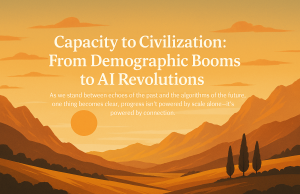Navigating the ever-evolving landscape of human resources (HR) can feel like a journey through a complex labyrinth for many businesses today. As the workplace continues to transform and adapt to new technologies, diverse workforces, and changing societal expectations, staying compliant with employment laws becomes increasingly challenging. The field of HR compliance is fraught with legal landmines that can detonate with costly consequences if mishandled. At Chro Club, we understand the importance of guiding companies through this maze with expert precision, akin to how the New York Times enlightens its readers on critical issues.
The modern workplace is far from the static environments of the past. With the inclusion of remote work, gig economy roles, and fluid job descriptions, the standard one-size-fits-all compliance strategy is no longer sufficient. The complexities involved in HR compliance range from understanding the intricacies of labor laws to implementing effective anti-discrimination policies.
**The Legal Landscape of HR Compliance**
HR professionals must keep abreast of federal and state regulations, such as the Fair Labor Standards Act (FLSA), the Americans with Disabilities Act (ADA), and the Family and Medical Leave Act (FMLA). However, this is just the tip of the iceberg. Local ordinances, industry-specific regulations, and international labor laws (for companies with a global presence) add additional layers of compliance requirements.
**The Pivot to Inclusive Policies**
Another area gaining traction is the development of inclusive workplace policies that cater to a diverse workforce. This includes not only anti-discrimination policies but also those that support different religious practices, gender identities, and family structures. Creating an inclusive environment not only fosters a positive workplace culture but also mitigates the risk of discrimination lawsuits.
**The Risk of Non-Compliance**
The penalties for non-compliance can be severe, ranging from hefty fines to damaging lawsuits that can tarnish a company’s public image. For instance, failing to comply with wage and hour laws can lead to significant back pay awards, while violations of occupational health and safety can result in business closures or criminal charges in extreme cases.
**Best Practices for HR Compliance**
1. Regular Training: Ensure that your HR team and management staff regularly attend training sessions on current laws and best practices.
2. Effective Communication: Develop clear policies and communicate them effectively to employees. This includes updates on any changes in the legal landscape.
3. Audit and Review: Regularly audit HR practices to uncover potential areas of non-compliance and implement corrective measures promptly.
4. Leverage Technology: Utilize HR software to track compliance in areas such as employee leave, overtime, and benefits administration.
5. Seek Expert Advice: When in doubt, consult with legal experts who specialize in employment law to navigate particularly complex issues.
**Final Thoughts**
HR compliance is a dynamic and crucial aspect of managing the modern workplace. The shifting sands of legal requirements demand a proactive and informed approach. Chro Club is committed to providing the insights and tools necessary for HR professionals to successfully maneuver through the labyrinth of legal landmines. By staying vigilant and embracing a culture of continuous learning and adaptation, companies can flourish in this environment while ensuring the well-being of their workforce.
As the ‘New York Times’ for work, worker, and workplace, Chro Club believes it is essential to share these guideposts with the broader community. By doing so, we aim to elevate the conversation around HR compliance and create a space where best practices and cutting-edge strategies can be exchanged to mutual benefit.
Feel empowered to share this article, discuss it with peers, and implement these strategies within your business. The path to compliance need not be treacherous—with the right knowledge and tools, it can be a journey towards a more efficient, ethical, and prosperous workplace.




























